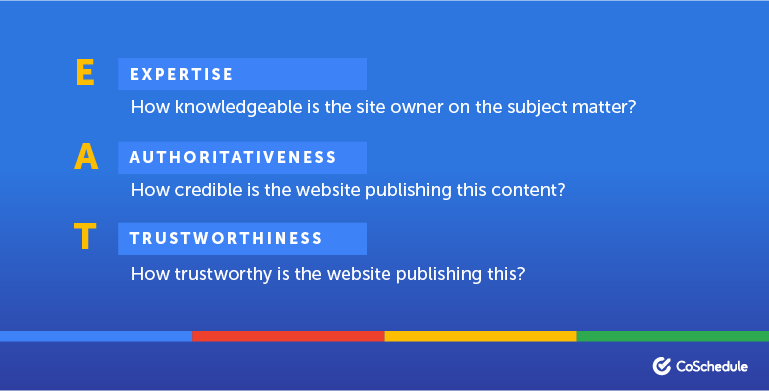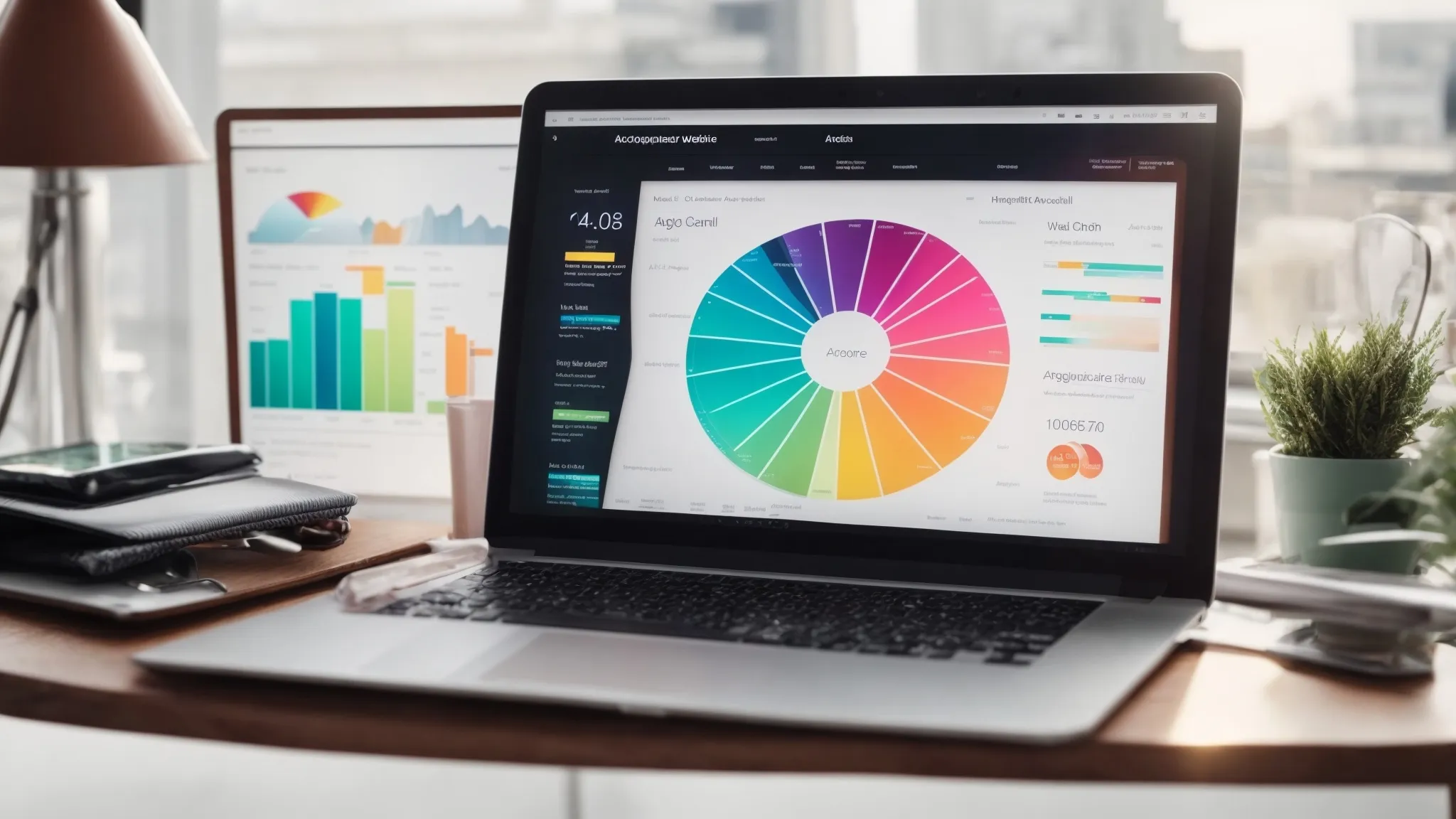Information Marketing: How to Share (and Sell) your Knowledge
Search engine results are full of informational guides, how-to videos, and infographics that teach us how to complete tasks properly, use tools, or accomplish goals in business […]
Search engine results are full of informational guides, how-to videos, and infographics that teach us how to complete tasks properly, use tools, or accomplish goals in business and in life. These informational guides are actually examples of something called information marketing, and they can be a great tool for both consumers and business owners alike.
More than ever, we consume information on our desktops, tablets, and mobile devices, and when leveraged properly, informational marketing can improve your business’ reputation, earn new leads, and even generate additional revenue for your brand.
What is Information Marketing?
Simply put, information marketing is a marketing strategy that provides specific details about a product or service. This type of marketing can include information about the following:
- How a product or service works
- How to use a product or service
- The different features of a product or service
- How a product or service compares to similar solutions
- Additional knowledge necessary to use a product or service
If a customer knows everything there is to know about a product, then he’s more likely to buy it––so goes the logic of information marketing. Think of it as providing the nitty-gritty of your products, services, and their overall value potential.
Additionally, if someone visits your website, and you answer all of their questions, then they won’t need to leave your page in search of answers somewhere else. There’s also the matter of transparency. To the average reader, more information correlates with a greater degree of honesty. The more you tell a potential consumer about your product, the more likely they are to fall in love and ultimately convert.
Content Marketing vs. Information Marketing: What’s the Difference?
People often assume that content marketing is the same as informational marketing. Sure, content marketing informs consumers, and informational marketing consists of content (Doesn’t everything?), but the intentions and goals behind both have important distinctions.
What is content marketing?
Content marketing is a long-term, strategic marketing approach that focuses on building long-lasting relationships with consumers, all the while understanding and learning their behaviors. When done correctly, content marketing targets consumers in all parts of the marketing funnel––from prospective customers simply searching for ideas to those who have brand loyalty and are ready to convert.
Content marketing is a long game, and there are plenty of ways to share your content. When crafting your content, keep in mind these two concepts: relevance and consistency. You’ll want to provide readers content relevant to them, on a consistent basis.
Here are some ways to achieve this:
- Develop a blog on your website: You can get creative with these, and speak about a variety of shoulder topics of your product and/or service. Look into Search Engine Optimization best practices, and check out what your competitors are doing for some good ideas to get started. When done properly, a blog can turn your website into a multifarious resource that pulls in readers and directs them towards your services.
- Beef up your social media game: Social media is more popular than ever, so you’ll want to optimize your profiles on the channel that makes the most sense for your consumers. For example, if your item is a consumer product, choose Instagram so you can take great quality pictures and videos and share them that way. On the other hand, if your service is targeted to professionals and businesses, LinkedIn may be the better platform to invest your efforts. Not sure of where to start? A Facebook profile is always the best bet as it reaches a variety of demographics in one single swoop, and you can also use this platform for some strategic paid media campaigns.
- Research your potential customers: At the end of the day, your purpose for content marketing is to create brand loyalty, so you’ll want to reach your customers right where you can find them. Do some market research to find out what channels and platforms are the best for this, whether through newspaper ads, social media banners, or direct-to-consumer mailers.
Content is exceptionally versatile, making it all that more important to be strategic in your marketing approach. You can think of content marketing like the stock market; whatever you put into it, you’ll likely get out of it. Invest your time and your efforts wisely, and you’ll likely reap the benefits.
How is information marketing different?
Where content marketing is a long-term strategy that can be broad and versatile depending on your market segment, informational marketing is specific, targeted, and detailed. This type of marketing most often tells a story, explaining either a service offering or a product. As a part of an overarching content marketing goal, informational marketing usually falls within the following media:
- Webinars
- Ebooks
- White Papers
- Tutorials
Types of Information Products to Promote your Knowledge
When it comes to informational marketing, your ideal medium depends on both your specific needs and business model. Use the following information to decide which option is best for you.
Ebooks
In a world of digital content, an ebook is an object of value, one that won’t get lost in the hustle and bustle of links and webpages. Additionally, an ebook works to strengthen your brand as it shows prospective consumers that you’ve taken the time to create a trustworthy document, further promoting your position as a thought leader in your industry.
As far as your informational marketing strategy goes, an ebook can be a gift that keeps on giving. Not only can you repurpose portions of its content for social media accounts and blogs, but you can also publish updated editions as newer information becomes available. Once you have your ebook base, you’ll only be able to expand from there, possibly culminating in a physical text, further cementing your authority within your industry.
Webinars
Even amidst our current pandemic, brands are seeking to engage their consumers on a personal level. This is where webinars come in handy, as they help a customer put a face to your brand, all the while gaining access to valuable video content. A webinar can be a great way to promote a new product or a business process while showing off your strengths to your target market
Plus, we are all bored at home, and we are craving something to look forward to. A webinar can be seen as an “event,” which can cause excitement for consumers. After all, it’s nice to focus on something when stuck at home. While having a one-time webinar can be great when it comes to testing the waters of webinars, it will be helpful for your marketing mix to include webinars on a more regular basis. Think of it this way, the more webinars you host, the easier you can segment your content into smaller, digestible chunks. Video content also possesses a high likelihood of being shared. Never underestimate the power of passive media.
White Papers
In order to make a purchase, some consumers want the hard facts––and lots of ‘em. This is where white papers really shine, as they are in-depth, persuasive reports on a specific problem and the ways in which your product or services can solve it.
When it comes to informational marketing, white papers can educate the audience, promote methodologies, or explain a controversial topic. It is important to note that white papers are not product pitches; rather, you are offering a solution to the problem at hand, with your product and/or service being the answer. The goal is to inform, persuade, and convince the audience that there is a problem, and thus, why the prospective customers need to buy the product right now. For example, if your product is productivity software for remote workplaces, an effective white paper might point out the ways in which online distractions can tank productivity with at-home workers, ultimately pointing towards the solution offered by your program.
What makes a white paper stand out is the size, depth, and time commitment that goes into creating each one. While blog posts are easily digestible and can be made flashy with art and GIFs, white papers are going to look and read more like an academic text. While it won’t be as flashy as your other marketing materials, a white paper will impress consumers with its thorough research and reporting.
Tutorials
Tutorials offer brands a quick and easy way to teach your consumers about a certain product or service. Not everyone learns through reading content, so creating a visual webinar promoting your product can appeal to all sorts of consumers, from visual learners to those who don’t have the time to read your 30-page ebook.
In a world of digital content, you’ll want to stand out like a big fish in an even bigger pond of marketing activities. Video tutorials are an attractive method of showing a user how your product works, as well as answering any potential questions they may have. Plus, it is easier to go into depth with video, as very long descriptions can turn people off and cause them to find answers elsewhere.
Tutorials are powerhouses when it comes to marketing, as when the user is done watching the video, they’ll learn more about your brand, your story, your products, and how the product will benefit them. Let’s use the same example of a productivity software. Sure, your software promises increased computer-based productivity, but this sounds abstract and potentially complicated. A video tutorial of its features can help demystify the product, showing the potential user how simple it is to use.
How to use Information Marketing for Lead Generation
Many B2B and B2C consumers are seemingly afraid of lead generation, as it can be quite a daunting word and concept for a beginner. However, the key to efficient lead generation is to be creative. Again, you will want to stand out, so here are some creative ways to use your information marketing to grow your business through lead generation.
- Request a reader’s email before they can download your ebook or white paper. This way, you have their contact information and can include them in any business marketing email outreach, so they don’t forget who you are as a brand.
- Create an informational and interactive quiz about your product or service. Then you can reward a good score with a special offer or discount.
- Share success stories from industry thought leaders, and how your business can support these principles.
- Create a learning course that can be taken over email. Or similarly, have a weekly webinar with new, updated information every week and promote it over email.
- Develop a template or worksheet that can help simplify an everyday task. By doing this, you’ll show the prospective consumer how much they can benefit from utilizing your brand.
At the end of the day, all of these lead generation concepts are here to promote brand loyalty to a niche market and to remind consumers that you exist. Giving away information up-front––before the consumer even has the chance to ask a question––is a fantastic way to build trust, which in turn results in conversions and profit.
How to Use Information Marketing as an Additional Revenue Stream
So how do you get the best ROI when using information marketing for your online business? The easiest answer is to charge for your work. Marketing doesn’t always have to be free to consume, so it only makes sense that you need to monetize all your hard work while promoting that you have valuable content.
Consider this––the average person sees about 5,000 ads and various consumer marketing materials a day. This is a ton of content, and chances are, we don’t really absorb everything we read. Because of this, it is only natural that we put a lower value on marketing that is free, so charging for your ebooks, whitepapers, and attending webinars makes sense.
However, in order to gain the most interest in your materials, make sure to allow a free preview of some kind. You don’t want to turn people away automatically because you charge for premium content, so give them a quick taste first to increase demand.
Some ideas for this “free taste” can be the first chapter of an ebook, the first third of a whitepaper, and free attendance for one session during a recurring webinar.
Information Marketing and Google’s E.A.T
Every once in a while, Google comes out with different updates to their algorithms. One of the most popular and most newsworthy algorithm updates was the E.A.T update that happened back in 2018 and 2019. During this time, Google’s Search Quality Evaluator Guidelines were updated to rank content that has expertise, authority, and trustworthiness to its readers rather than content that may not be relevant and useful.

The whole idea behind this change is to more effectively rank pages based on how the users view the content. In short, Google feels that if a reader does not believe content has expertise, authority, and honesty, they will leave the webpage and not convert. And if there is nothing of value to a prospective customer, why bother ranking it in the SERPs over another webpage with great information? After all, value is a descriptor both democratic and subjective.
When broken down, the specifics of what Google rates as E.A.T are as follows:
Expertise
- Are the writers experts on the topic, and do they have any specific credentials on this topic in the industry?
- Do other suppliers, distributors, and industry professionals link to this page, therein casting a vote of confidence in its content?
- Is all the information easy to read and accessible on the site?
Authority
- Do these people have generally recognized authority in their industry’s space? Are they considered thought leaders in their field?
- Is a website a good source of information on this topic?
- Is the topic updated regularly, with evidence that it is factual?
Trustworthiness
- Do consumers consistently come to your website for information they can trust?
- Is the content free from factual inaccuracies and grammatical errors?
Because informational marketing is chock full of details and is specifically targeted to a niche audience, you will want to keep the E.A.T guidelines at the top of your mind when creating content. Informational marketing tends to be the first in-depth glance a consumer has about your brand and business, so ensuring your content comes from an expert, authoritative, and trustworthy source is one of the most important things you can do.
Final Thoughts on Information Marketing
When used properly, informational marketing can be a very powerful marketing tool for any size business. From promoting retail items and digital products, to creating thought-leadership potential, info-marketers are making themselves known to the marketing community by sharing the most detailed information they can.
So, in a world full of information, how will you make yours stand out?















































































